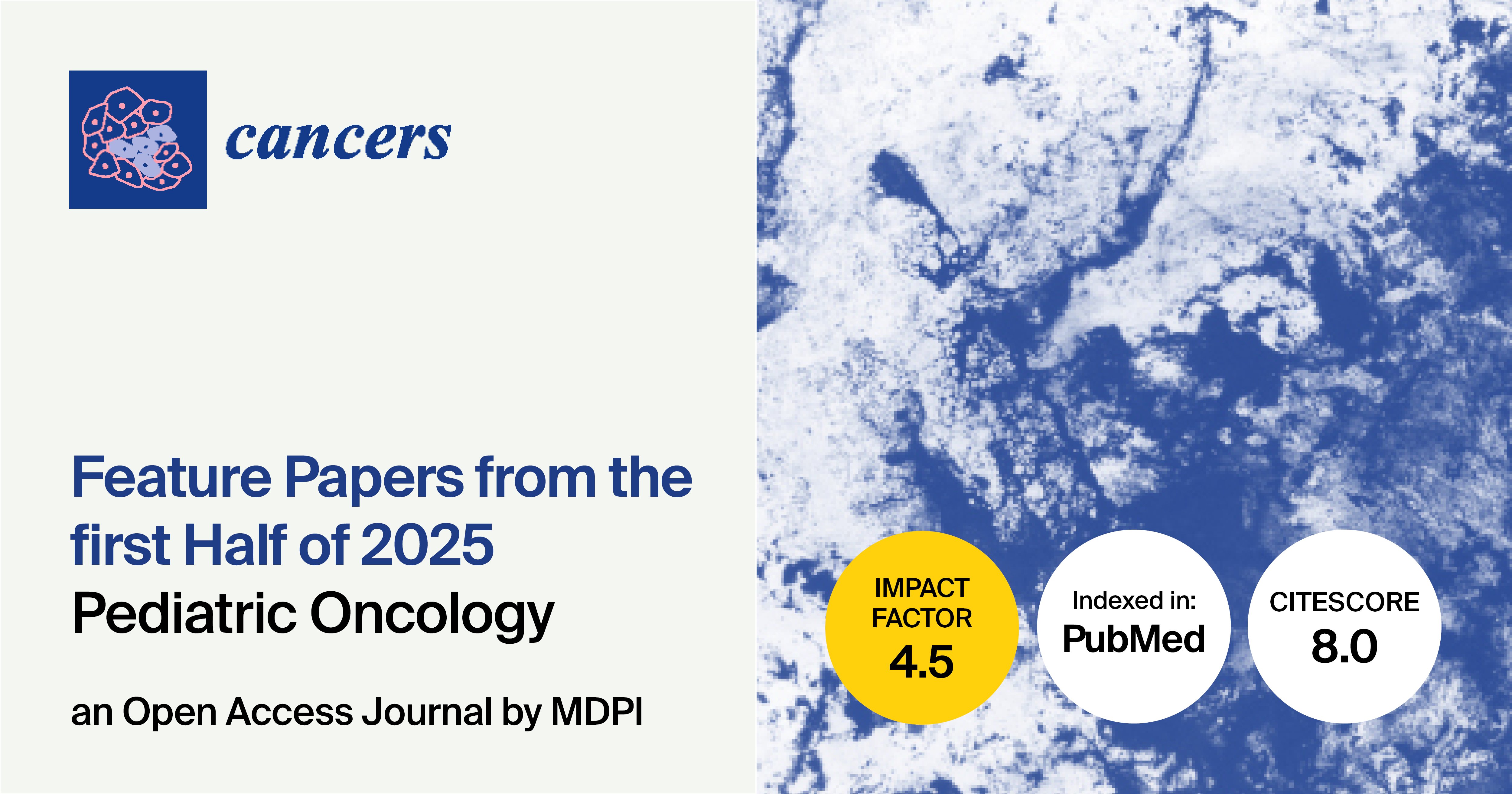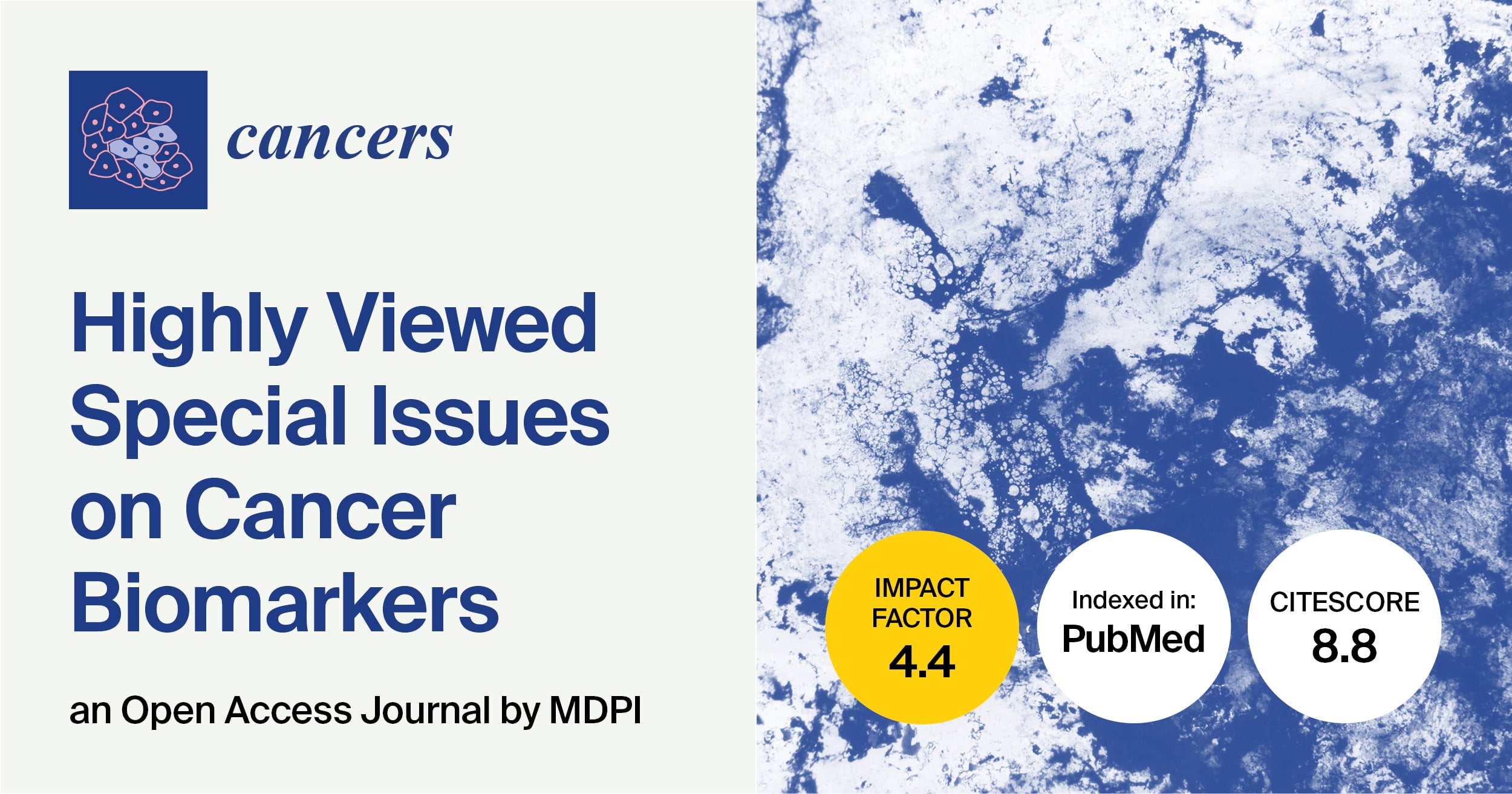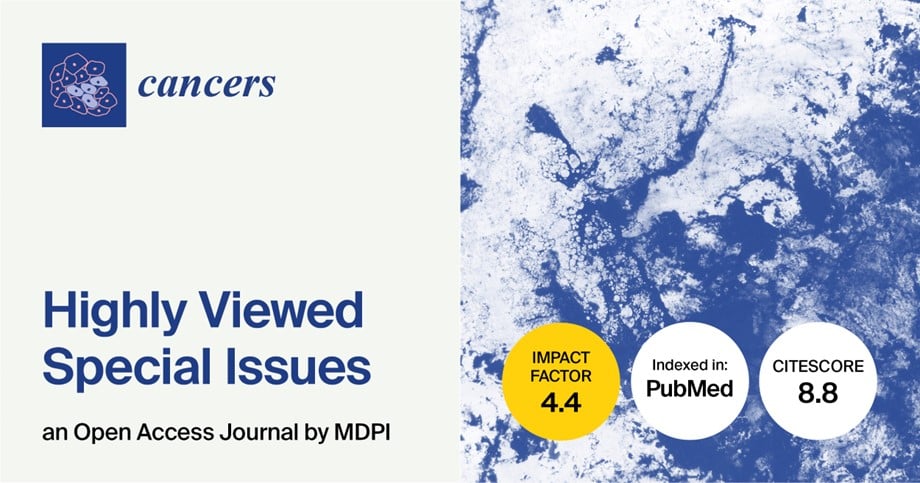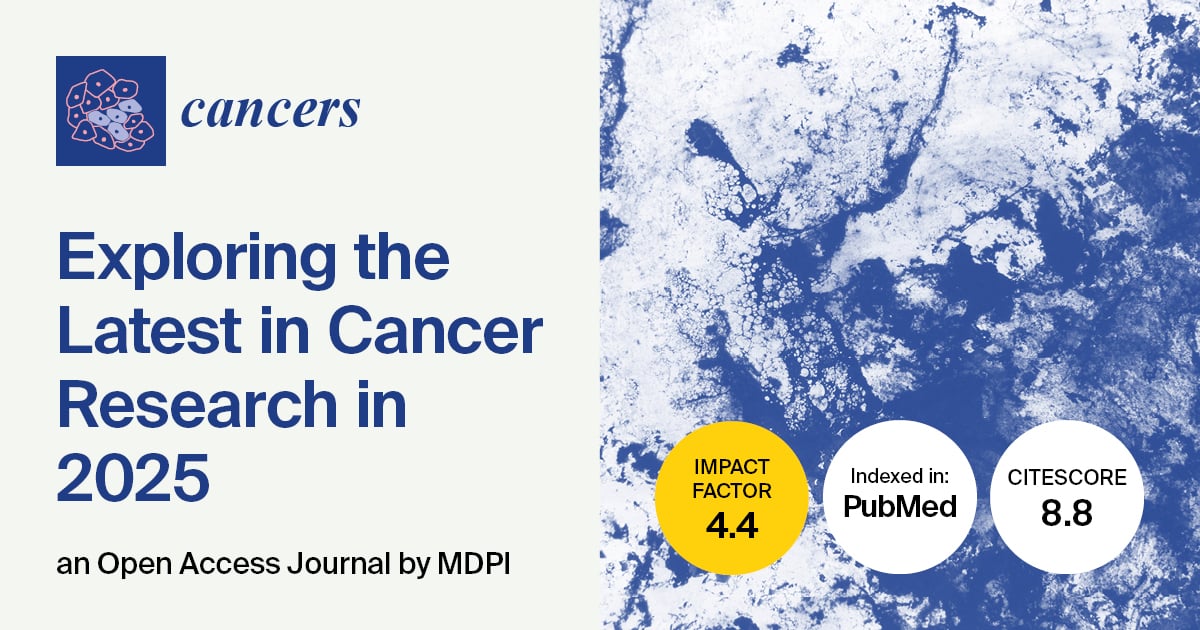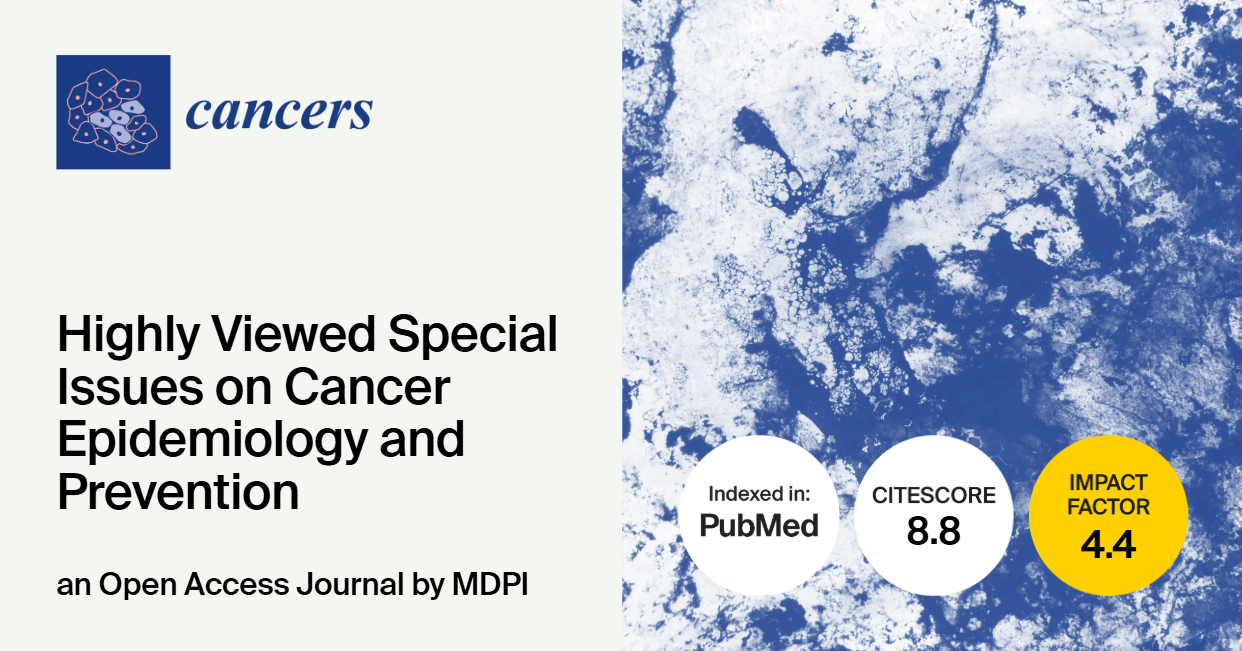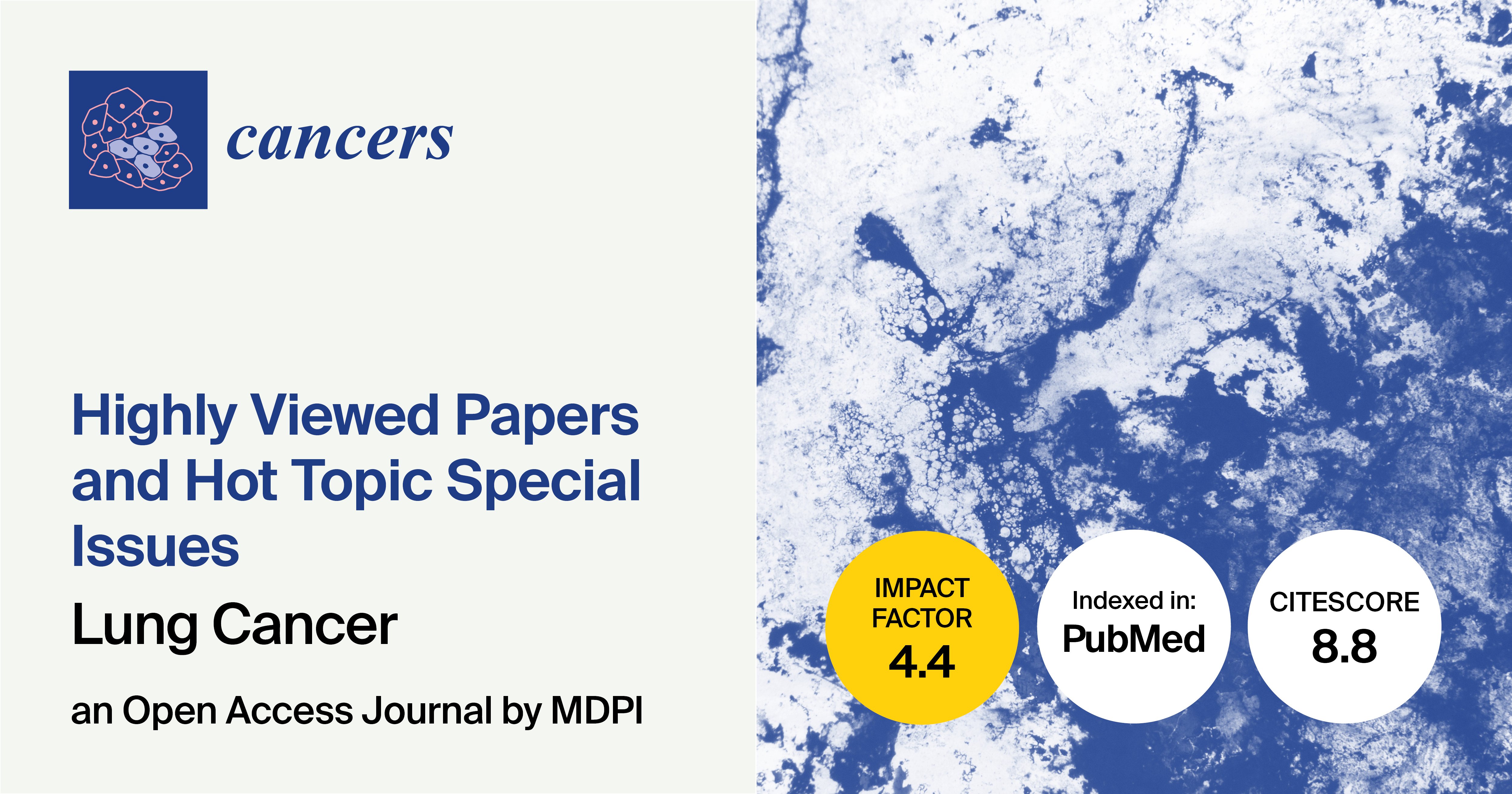- 4.4Impact Factor
- 8.8CiteScore
- 21 daysTime to First Decision
News & Conferences
Latest News & Announcements
Latest Conferences
Propose a Conference Collaboration
Promote and publicise your upcoming conference with MDPI.
All News & Conferences
News & Announcements
Cancers | Highly Viewed Special Issues on Tumor Microenvironment
21 December 2025
News & Announcements
Meet Us at The World Congress of Nephrology 2026, 28–31 March 2026, Yokohama, Japan
18 December 2025
News & Announcements
Cancers | Feature Papers from the First Half of 2025 in the “Pediatric Oncology” Section
17 December 2025
News & Announcements
Cancers | Highly Viewed Special Issues on Methods and Technologies Development
17 December 2025
News & Announcements
Cancers | Highly Viewed Special Issues on Cancer Biomarkers
17 December 2025
News & Announcements
Cancers | Highly Viewed Special Issues (II)
17 December 2025
News & Announcements
Cancers | Highly Viewed Special Issues on Cancer Survivorship and Quality of Life
15 December 2025
News & Announcements
Cancers | Highly Viewed Special Issues
15 December 2025
News & Announcements
Cancers | Exploring the Latest in Cancer Research in 2025
12 December 2025
News & Announcements
Cancers | Highly Viewed Special Issues on Cancer Epidemiology and Prevention
11 December 2025
News & Announcements
Cancers | Highly Viewed Papers and Hot Topic Special Issues in Lung Cancer
11 December 2025
News & Announcements
Cancers | Highly Viewed Special Issues on Cancer Informatics and Big Data
11 December 2025
of 64




